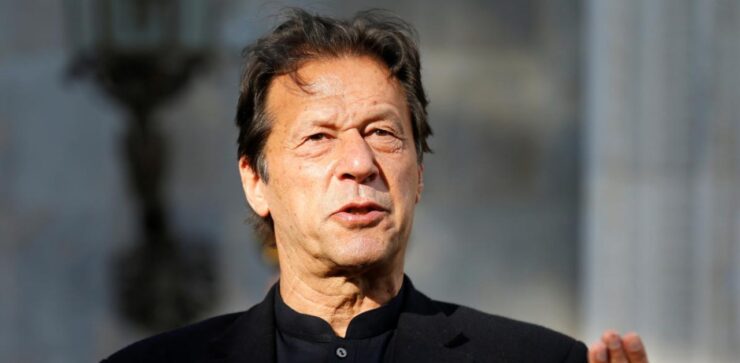
Statecraft and politics is all about making dangerous and risky choices which promotes the betterment of the people and helps in bolstering the popular legitimacy of the state, but it ostensibly appears that Pakistan is doing the opposite and that to in a spectacular fashion. The recent agreements which the Imran Khan government has signed with radical groups like Tehreek-E-Labbaik Pakistan (TLP) and with dreaded terrorist group Tehreek-E-Taliban Pakistan (TTP) is an extremely worrying situation for Pakistan and the fledgling state whose legitimacy is almost in tatters. For far too long terror and misuse of religion as an instrument of foreign and domestic policy statecraft has paid dividends and losses to the Pakistani state, but this situation appears to be a new low in Pakistan’s dubious fight against terrorism and extremism.
What is more worrying is that the Pakistani army and the deep state-ISI is in cahoots with the government on these agreements. Perhaps the deep state has learnt nothing from history that appeasing terror groups never yields advantages but only results in pain and suffering.
A classic blunder
In the words of Jyoti Basu, the agreements which the government of Imran Khan have struck is nothing short of “Historic Blunder”. The TLP and TTP are both hard core hardliners who do not believe in the principles and ideas of liberal democracy and consider liberty, equality and fraternity as alien western concepts which is unislamic. These agreements will go on to make the life of the Pakistani state and army all the more difficult. There are several reasons-
Firstly, the TLP is a radical Islamist group which was formed in 2015 to “zealously” guard the holy religion of Islam and also protect the Pakistani state’s extremely controversial blasphemy laws. On the other hand the TTP was born following the Pakistani army’s operation Zarb-E-Azab at the Lal Masjid which resulted in the loss of scores of lives. The TTP has historically targeted the Pakistani army and the ISI besides civilian targets, this group was also responsible for the dastardly 2014 Peshawar Army School attack which killed some 140 children. By signing peace agreements the Pakistani state is legitimizing their existence and mainstreaming them, doing so will end up vitiating the societal peace of the country.
Secondly, the increasing radicalization of the Pakistani polity and society since the time of Zia ul Haq has been responsible for the undermining of the secular fabric of the country. Pakistan is now considered as a pariah state among the comity of nations, by meekly surrendering to these elements Pakistan is sending out all the wrong signals that the state is not strong enough to tackle external pressures.
Lastly, the Pakistani economy is in the ICU and is barely able to function thanks to loans from IMF, Saudi Arabia and its iron-brother China. While inflation is skyrocketing, there are food shortages in the hilly states and the country is only one of two countries to still experience polio on an epidemic scale. Hence the agreements with these radical groups will only push Pakistan into the abyss as the FATF (Financial Action Task Force) is keeping a hawk eye on Pakistan’s actions.
Impact on its neighbours
Needless to say, the appeasement of these radical group will compound the security challenges for Pakistan’s neighbours, most notably India and Iran. With regard to India, this definitely signals a worrying moment given the fact that the Afghan Taliban recently captured power in Afghanistan and is amply made it clear through their actions that they seek to return to the 1990s with regard to the interpretation of Islam and public policy. The security challenge for New Delhi is compounded as because Pakistan may end up using the cadres of these hard line groups to foment chaos in Jammu & Kashmir on one hand and carry out serial attacks on vital and sensitive Indian sites as it did in the 1990s and early 2000s. The threat of radicalization remains very much alive. Iran and the central Asian neighbours of Pakistan are the next victims because they have experienced terrorism related incidents in the past which have emanated from Pakistani soil. On the other hand if China is thinking that it can insulate itself from these worrying state of affairs in Pakistan, then they are sadly mistaken, today terrorism knows no bounds and operates internationally through different mediums and means. The TLP and TTP can try and drum up support for the Uighur cause and target China by strengthening the East Turkistan Islamic Movement (ETIM) which has been banned in China.
Conclusion
Former British premier Winston Churchill very rightly said, “Study history, study history, in history lies all the secrets of statecraft”. It is hence imperative that Pakistan takes some lessons from history to correct its mistake. Time is running out, it is absolutely essential that the Pakistani army and government discards these agreements and crackdown hard on these groups. Otherwise the future of Pakistan and South Asia from the security point of view appears very worrying.
– The writer is currently working as a Trainee Research Associate at Defence Research and Studies (dras.in) and is a columnist. The views expressed are personal and do not necessarily reflect the views of Raksha Anirveda








